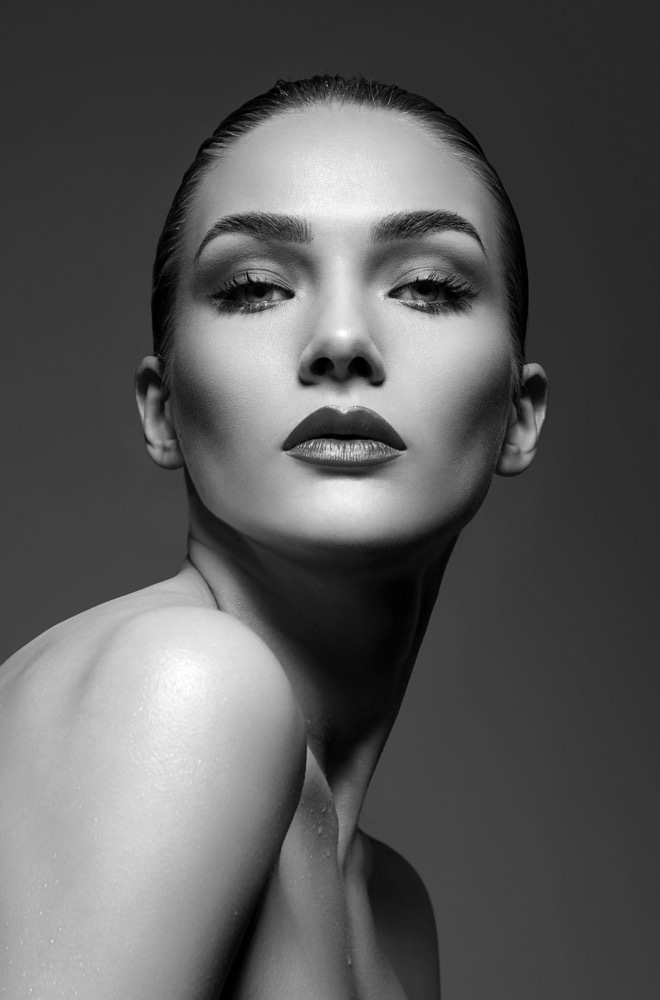
This year it’s marula oil, last year it was argan oil, and the year before it was shea butter. If all these cosmetic companies have the answer to beautiful skin, then why do we keep searching and trying and spending more money to find the perfect potion that magically transforms and preserves our skin forever? I’ve seen so many of my clients following the fad of the week, and it’s time to set the record straight.
But instead of just giving you some tips on products or some skincare do’s and don’ts, I want to challenge you on a deeper level.
I want to change the way you even think about your skin.
IT’S NOT JUST ABOUT BEAUTY. YOUR SKIN IS AN ORGAN.
This isn’t a secret. Yet we still tend to only treat our skin as part of our beauty regimen. When we categorize skincare as purely aesthetic, we tend to neglect the health aspect, which actually has a greater impact on our skin’s appearance. When taking care of heart health, stomach health, or brain health, we don’t think “I’m going to do this one thing and that should do it.” We are constantly making choices that either support our organ health or don’t. Over the years it becomes a cumulative effect and the more healthy choices you make, the better you look and feel.
Pursuing your own health is a conscious, long-term effort driven by consistency. Your skin acts no differently than any other organ. Abuse it and it breaks down rapidly. Protect it, and it lasts and stays stronger longer as you age.
One of the best ways I’ve ever heard skin described was in the context of the world we live in:
“Your skin does not separate you from the world. It’s a bridge through which the external world flows into you. And you flow into it.” -Alan Watts
Think about that for a second. Your skin is not separate from the world, it is part of the world. It is what allows you to make contact with the world outside of your body. It is a bridge to touch and feel and explore the world. We are often marketed to by cosmetic and skincare companies about making our skin look pretty, and we forget this very basic fact. Your skin is not there to just be admired – it’s there to connect you to the outside world.
Your skin doesn’t have a type!
Your skin is ever-evolving and changing, and you may even have different needs from season to season or year to year. Skin changes constantly, it sheds itself constantly, it renews itself constantly. All the cells that make up who you are today will be gone in a couple of weeks only to have new ones created.
Your skin is constantly evolving, adapting and changing to your internal and external environments. It regulates your temperature and protects you from microorganisms. There is no science in the world that is capable of regenerating skin the way you do naturally and biologically. Think about the last time you cut yourself. Did you have to tell your skin to heal itself? No, It did it on its own.
Sometimes you are oily and sometimes you are dry and sometimes you are a combination. Your skin doesn’t have a type because it can be every type throughout your life. Typing is convenient for marketing, as it makes selling skincare easy and effective, but it is not accurate. It cannot even begin to diagnose all the complex functions that your skin regularly experiences.
If there’s one thing I’d want you to take from this article, it’s this: you are not a type. You are a constantly evolving person whose needs change. Your skin is no different.
COMMON PRODUCT AND TREATMENT MISCONCEPTIONS
If you treat your skin based on its uniqueness to you and think about it as something to be cared for, not just beautified, the next step is to understand how to look at your skincare products.
Chemical Sunscreen vs Physical Sunscreen
There has been a lot of talk around the differences between chemical and physical sunscreens. It is generally considered safer to use physical sunscreen and wear protective clothing, but ultimately, the keyword here is protection. Using chemical sunscreen is still better than not applying any protection at all.
That being said, your skin is like a sponge. Anything you put on your skin will be absorbed in some capacity into your body.
Chemical Sunscreens contain compounds, such as oxybenzone, octinoxate, octisalate and avobenzone, which create a chemical reaction and work by changing UV rays into heat, then releasing that heat from the skin.
Physical sunscreens, on the other hand, sit on top of your skin and reflect UV rays rather than absorbing them. Some common physical sunscreen ingredients are titanium dioxide and zinc.
With the skincare cancer scare, premature aging, and harmful chemical concerns, it’s no wonder sunscreen safety has been scrutinized so much lately. Here are some facts to consider:
- Chemical sunscreens absorb UV rays, physical sunscreens block and reflect them.
- The FDA has requested more studies on the safety of chemical sunscreens as they discover the skin’s ability to absorb far more into the body than previously thought possible.
- Just because a brand says that it has natural sunscreens or organic sunscreens it doesn’t mean that it’s all physical sunblock ingredients only. Some sunscreens are misleading because they have a combination of both physical and chemical ingredients, so read your labels carefully!
So yes, while you are better off going with physical sunscreens, if you don’t have the choice, just make sure you put on some kind of protection. In the same way you’d protect your feet from stepping on splintered bark or sharp rocks on a hike, protect your skin from exposure to the strong sun.
Natural Doesn’t Mean Better
The word “natural” is trickier than it may seem on the surface. When used in the context of skincare products, it is a very misleading description.
A product labeled as “natural” doesn’t mean that it’s bad, but it doesn’t necessarily mean it’s better either.
As we become more conscious consumers, we seek out healthier, safer, and fairly manufactured products. With that mentality, it’s no wonder a product labeled “natural” would sound more appealing. However, seeing “natural” or “natural ingredients” on the label doesn’t always mean that the product is farm to bottle as it is marketed.
A quick rule of thumb to help you determine what is a truly “natural” product is whether or not it needs to be refrigerated. Any non-refrigerated product is by definition NOT 100% natural, even if it is advertised that way. Truly 100% natural formulas would spoil quickly without a way to preserve them.
Many skincare companies also tend to label formulas as natural because those formulas have natural products in them, but not because they are all natural.
This goes right back to treating your skin as unique to you. Listen to your body, and be aware of which ingredients your skin demands you avoid. But when it comes to labels, remember that most of it is, at the end of the day, marketing.
Ignore the marketing. Check the ingredients. Consult your esthetician. It’s that simple.
LOOKING FOR AN ESTHETICIAN IN NYC FOR YOUR SKINCARE NEEDS?
Your skin is the largest organ you have, and it’s your connection to the world around you. My goal is for you to understand your own skin and its needs, and help you feel and look like your best, healthiest self without the gimmicks.
If you are based in Manhattan, or the Greater New York City area, give me a call or book an appointment to discover what you’ve been missing when it comes to your skincare routine.
